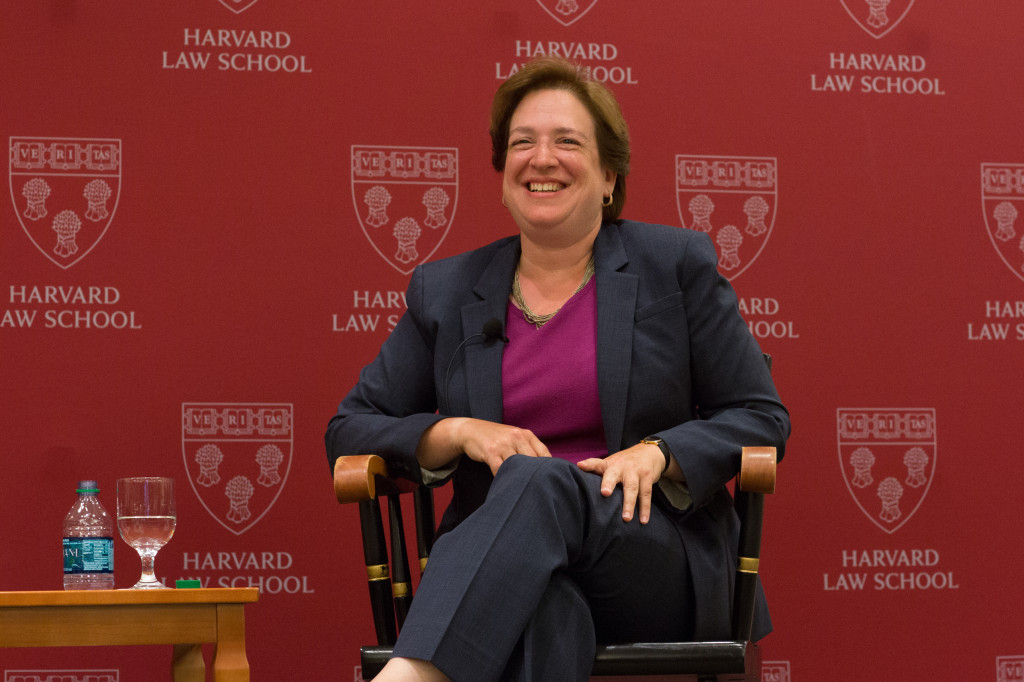Come on join the party dressed to kill

As Mark Joseph Stern observes, Kagan has been absolutely roasting Kavanaugh’s typically whiny and poorly reasoned dissents over the last few weeks:
Kagan, in response, dismissed Kavanaugh’s complaint as “a complicated counting exercise” apparently meant to show “how unfair it is” that his “view has not prevailed here.” She added that “there is nothing particularly unusual about today’s line-up.”
Later, Kagan mocked Kavanaugh for “reprising (if at higher volume) the government’s flawed argument.” She scorned him for “essentially repeating what the government says, though with a distinctively question-begging quality.” In one brutal passage, Kagan even accused Kavanaugh of engaging in “machinations” by rewriting ACCA to mean what he wanted it to say, adding: “Statutory construction does not work that way: A court does not get to delete inconvenient language and insert convenient language to yield the court’s preferred meaning.”
At one point, Kagan used an extended metaphor comparing Kavanaugh to an amateur magician who inadvertently revealed his trick to the audience. Kavanaugh, Kagan explained, “is putting the rabbit in the hat” by adding words that do not appear in ACCA. Her kicker: “We must construe the elements clause as it is—without first inserting the word that will (presto!) produce the dissent’s reading.”
These haven’t been super-important cases — if they were, let us be frank, Alito or Roberts would be writing the principal dissents rather than having them assigned to the B team — but in isolation the brutal ownage is satisfying. The problem is, though, that it bodes really poorly for the rest of the term:
This tactic does not inspire confidence that Kagan has talked Kavanaugh into finding a middle ground on this term’s blockbusters. Over the next several weeks, the court is due to release opinions in several major cases where Kavanaugh’s vote could make the difference. In Fulton v. Philadelphia, the court could force Philadelphia to fund foster care agencies that refuse to work with same-sex couples. In Brnovich v. DNC, the court could kneecap what remains of the Voting Rights Act, opening the door to even more voter suppression. In Americans for Prosperity v. Bonta, it could give high-dollar donors to political “charities” a constitutional right to conceal their identities from the public, and weaken the constitutional basis for campaign finance disclosure laws.
If Kagan had persuaded Kavanaugh to defect from the conservative bloc on any of these blockbusters, we might expect her to go easy on the justice in an off-the-radar case like Borden. By turning up the heat instead, she may have given us a distressing forecast of the gloomy weeks ahead.
Some justices — Douglas, Stevens, Scalia, Thomas, Sotomayor — just say what they have to say when not speaking for the Court, and don’t care if it hurts your feelings and might cost them a vote in some marginal future case. What’s ominous is that Kagan is not in this mold. Like the successful Ivy League dean she was, she is very confident — in the context of the Supreme Court, too confident if we’re being honest — about her ability to form strategic alliances. The fact that she’s firmly in DGAF mode even in minor cases is a pretty grim sign.


